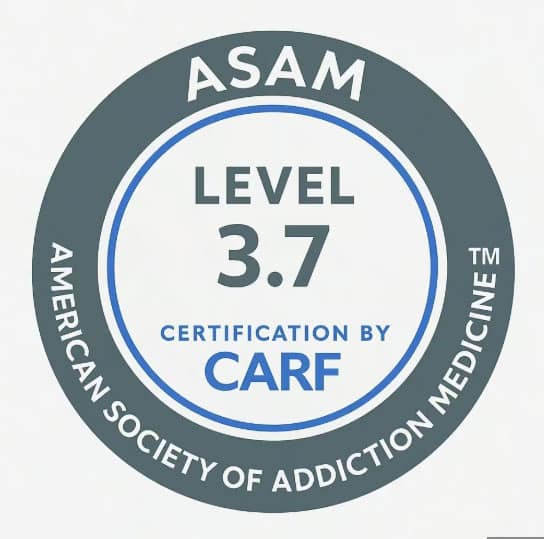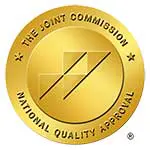Treatment for Cannabis Dependence and Co-Occurring Disorders in Los Angeles
Struggling with marijuana addiction? Ritz Recovery provides a caring and upscale sanctuary for those seeking marijuana rehab in Los Angeles. Recognizing the unique nature of each person’s struggle, our program focuses on personalized care, blending innovative therapies and holistic support to guide you toward a life of sobriety. In a city as dynamic as LA, Ritz Recovery provides a peaceful and empowering environment for individuals to heal, grow, and rediscover their strength, free from addiction.

Understanding Marijuana Addiction
Marijuana consumption is prevalent among a significant portion of the population. While many individuals can use marijuana responsibly and in moderation, some face the alarming progression from recreational use to a detrimental and unmanageable dependency. If your life has been negatively impacted by marijuana use, it is crucial to recognize that help is available. By seeking appropriate treatment at a trusted marijuana rehabilitation facility, you can break free from the cycle of drug use and achieve lasting recovery.
What Is Marijuana?
Marijuana, a plant containing several psychoactive compounds, notably THC, is renowned for its intoxicating effects. THC, the primary compound, is responsible for inducing the plant’s characteristic “high.” When marijuana is smoked or consumed, THC enters the bloodstream, eventually reaching the brain, where it binds to receptors and triggers its effects.
Throughout history, marijuana has been utilized for various purposes, including recreational, medicinal, and religious practices. However, its use has recently sparked debates due to differing legal stances across states. Irrespective of its legal status, it is essential to be knowledgeable about marijuana’s potential risks and side effects before considering its use, as it can carry significant implications for one’s well-being.
Contributing Factors to Marijuana Addiction
While the precise causes of addiction remain unclear, several factors are believed to contribute, including genetics, environment, and psychological and mental health considerations.
Genetic Factors
Research suggests that addiction may be more prevalent among individuals with certain genetic predispositions. Family history of marijuana addiction, as well as specific genetic mutations, have been associated with an increased risk of developing addiction. Further investigation is necessary to fully comprehend the extent of genetics’ influence on addiction.
Environmental Factors
In addition to genetics and individual psychology, environmental factors play a significant role in addiction. Easy access to marijuana and early exposure to the substance are known contributors. Individuals residing in areas with readily available marijuana are at higher risk due to greater accessibility and increased exposure. Similarly, those growing up in households where marijuana is used are more prone to addiction as early exposure and familiarity can lead to early initiation.
Psychological Factors
Marijuana addiction is a genuine concern for many individuals and can arise from various psychological factors. Some individuals may turn to marijuana as a means of self-medicating for underlying issues such as anxiety or depression. Others may develop addiction due to the pleasurable effects of being high, leading them to continually seek that sensation by escalating marijuana use until it becomes unmanageable.
It is essential to acknowledge the complex interplay of these factors in understanding marijuana addiction and to approach it with comprehensive and personalized treatment strategies.
Indicators of Marijuana Addiction
While recreational use of marijuana can be benign, some individuals develop an addiction to the drug. Recognizing certain symptoms can help identify marijuana addiction, including:
- Experiencing withdrawal symptoms upon discontinuation
- Building tolerance and requiring larger amounts to achieve the desired effects
- Encountering challenges in work or school as a result of marijuana use
- Struggling to cease or control use despite attempts to quit
- Persisting with marijuana use despite experiencing negative consequences
If you or someone you know exhibits these symptoms, seeking professional help is crucial.
Consequences of Marijuana Addiction
Although marijuana is generally considered non-physically addictive, it can have significant psychological addictive properties. Individuals addicted to marijuana commonly experience withdrawal symptoms, which can manifest as:
- Heightened risk of suicidal thoughts
- Reduced motivation levels
- Impaired memory function
- Feelings of paranoia
- Increased heart rate
- Distorted perception of time
- Compromised motor coordination
- Challenges with concentration
- Feelings of depression
These effects highlight the potential impact of marijuana addiction on an individual’s mental and emotional well-being.
Treatment Options for Marijuana Addiction
The treatment of marijuana addiction typically involves a combination of behavioral therapy and, in some cases, medication. If you or someone you know is struggling with marijuana addiction, seeking professional help is essential.
Detoxification
Detoxification is a process aimed at eliminating THC, the active compound in marijuana, from the body. While detoxification alone is not a cure for marijuana addiction, it is an important initial step in the treatment process.
Contingency Management
Contingency management, or motivational enhancement therapy, has demonstrated effectiveness in treating marijuana addiction. This behavioral therapy approach utilizes rewards, such as vouchers or prizes, to incentivize abstinence from marijuana. Studies have shown that this method can effectively assist individuals in overcoming addiction and remaining engaged in treatment.
Sober Living
Sober living homes provide a supportive environment for individuals in recovery from substance abuse disorders. These group homes establish rules and structures to help residents maintain sobriety. Weekly house meetings, curfews, and mandatory attendance at 12-step meetings are common components. Sober living homes offer a transitional setting that supports individuals in early recovery as they reintegrate into daily life.
Aftercare
Aftercare encompasses services and support designed to assist individuals in maintaining their recovery after completing initial treatment. Aftercare programs provide valuable resources, tools, and ongoing support to help individuals avoid relapse and stay on track with their recovery. Evidence suggests that aftercare is beneficial for individuals recovering from marijuana addiction by offering essential resources and care to promote long-term success.
By considering these treatment options, individuals struggling with marijuana addiction can embark on a path toward lasting recovery and improved well-being.
Get Help Today
Schedule a confidential assessment with our admissions team.






